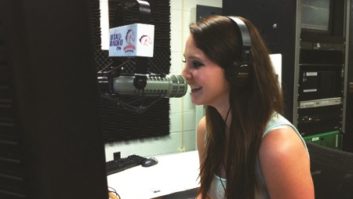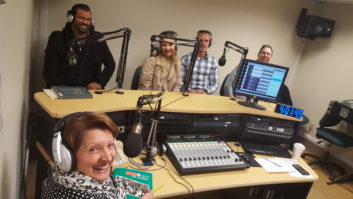
The author is general manager and program director of WFMU in Jersey City, N.J. This is one in a series of commentaries from the National Federation of Community Broadcasters.
Last week, I took part in a panel discussion about the continued power and relevance of independent radio. The conference had been sponsored by a college whose radio station had fallen out of favor with the student body.
It didn’t take long before an audience member addressed the elephant in the room: Why shouldn’t the college just sell the station and go “internet-only?” Lots of colleges have done the same. Why shouldn’t we go the same route?
Fortunately I had a few reasons ready to go, but forgot a few others. Here are five good reasons why colleges and universities should refrain from making a quick buck and unloading their radio stations.
YOU CAN’T PREDICT THE FUTURE
I’m old enough to remember the first “death of AM radio” prediction in the late ’60s and early ’70s when FM and its superior fidelity first conquered popular culture. What actually ended up happening was quite the opposite: AM was reborn as the band for talk radio, and the cultural and financial impact of that can’t be understated. Then as now, there is no saying what the market or the federal regulators will create out of FM radio in the future. And then as now, incumbent license holders will have a huge advantage over newcomers.
RESILIENCE DURING DISASTERS
Natural and manmade disasters demonstrate again and again the importance of radio, as well as its technical advantages over more modern forms of communication. Cellphone networks and the internet suffer from a huge Catch-22 problem: The more people who use them, the less well they work, until so many people are trying to use them that they cease to work at all.
At WFMU we saw this phenomenon after Hurricanes Sandy, Ida and Irene, not to mention after the 9/11 attacks, when people were huddled around cars to hear the news over the radio. Cellphones and web pages had come to a standstill. Disasters like these are intensifying and becoming more and more common. Radio’s resilience is a superpower that runs parallel to its role as a living member of a community. Even when networks are working, the digital divide is still significant. The Pew Research Center reported in August 2021 that 28% of rural Americans lacked broadband internet service. Fortunately, those communities are all served by radio.
IT’S NOT LIKE REAL ESTATE
Universities that sell their radio stations often view their FM license as though they were just another piece of real estate. They’re not. A college that sells a building or a parking lot to balance their budget may someday have the ability to buy a replacement building or parking lot. If you sell your radio station, it’s highly unlikely that you will ever have the ability to purchase a replacement. The NPR and religious broadcasters who buy college licenses do so for a reason, and so far none of them have had a change of heart and resold their college FM purchase.
DIGITAL-ONLY MEDIA IS NOT SO EASY
Universities that offload their radio stations usually attempt to set up a digital-only streaming studio for the students who still desire broadcast experience. While many digital-only media outlets have been successful, those have been heavily capitalized. Their university equivalents have not been a success. While it is feasible for a single part-time or full-time chief engineer to maintain a college FM station, digital media with its reliance on dozens of differently formatted and ever-evolving devices, can require an entire technical staff.
THE CACHET OF RADIO
The prestige or cachet of traditional broadcasting is no doubt in decline among younger generations. But for university stations that cover larger or metropolitan areas, there is a certain amount of prestige that comes with a traditional broadcast operation. And unlike digital trends (think NFTs) that rise like a meteor and then crash like a rock, broadcasting’s role is stable.
Radio World welcomes other points of view at [email protected].





